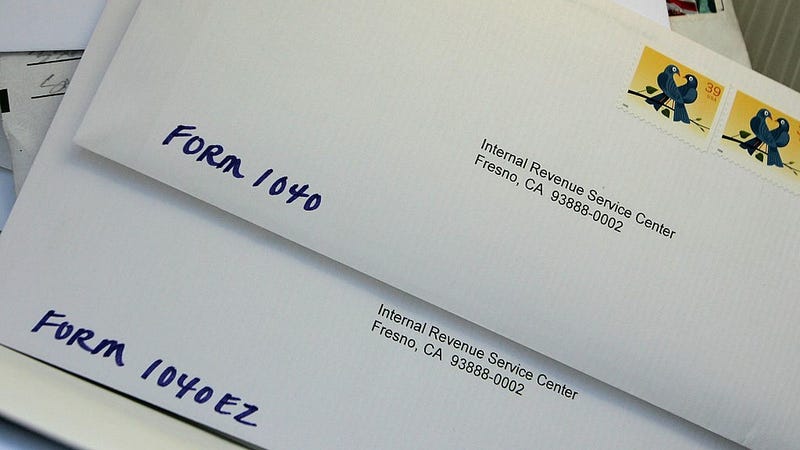
Keep a close eye on the mail you receive over the next month, and don't throw out anything from the IRS by force of habit.
The IRS will be mailing millions of CP14 letters to people who they believe have underpaid them, and not acknowledging the letter could result in financial penalties, Jackson Hewitt chief tax information officer Mark Steber told CBS News.
CP14 letters are sent to people if the IRS determines the individual has a balance of more than $5 on their account. A remaining balance could be caused by failing to pay their balance in full or not reporting an amount of income.
"The notice advises the taxpayer that there is a tax due, states the amount of tax, including interest and penalties, and requests payment within 21 days," according to the Taxpayer Advocate Service. "If the taxpayer does not pay the amount due within 60 days, the IRS can proceed with collection activity, including the filing of a Notice of Federal Tax Lien."
The IRS explained the situation on their website and answered a number of questions regarding the CP14 letter. One of the main questions was: "Am I charged interest on money I owe?"
"Not if you pay the full amount you owe by the date on the notice," the IRS said. "However, interest accrues on the unpaid amount after that date."
Traditionally, the IRS sends nearly 9 million of these letters each year, but has not been mailing as many letters over the last two years because of the COVID-19 pandemic. CP14 letters have to be mailed within 60 days after the IRS determines a tax liability.
"It's in the taxpayer's interest to know that they owe money so that those penalties and interest don't progress," Steber added.
The penalties can add up over time if you don't take care of the notice on time. There's a 0.5% per month fee on unpaid taxes, and that can increase all the way up to 25% of the balance due. If someone doesn't pay the amount due within 60 days, the IRS will then go after your personal belongings, and could place a lien on your car or home.
If you can't pay the full amount that owed, then the IRS says to apply online for a payment plan.
"In cases of financial hardship, the IRS may temporarily delay collection until your situation improves. For more information, see Temporary Delay of Collection Process," the IRS added.
People who disagree with the CP14 letter they've received can call the IRS and are advised to have all of the necessary paperwork, "such as cancelled checks, amended return, etc.," on hand when they call the tax agency.
"The IRS is good at a lot of things, and one of the things they are really good at is ultimately getting their money," Steber said.
LISTEN on the Audacy App
Sign Up and Follow Audacy
Facebook | Twitter | Instagram